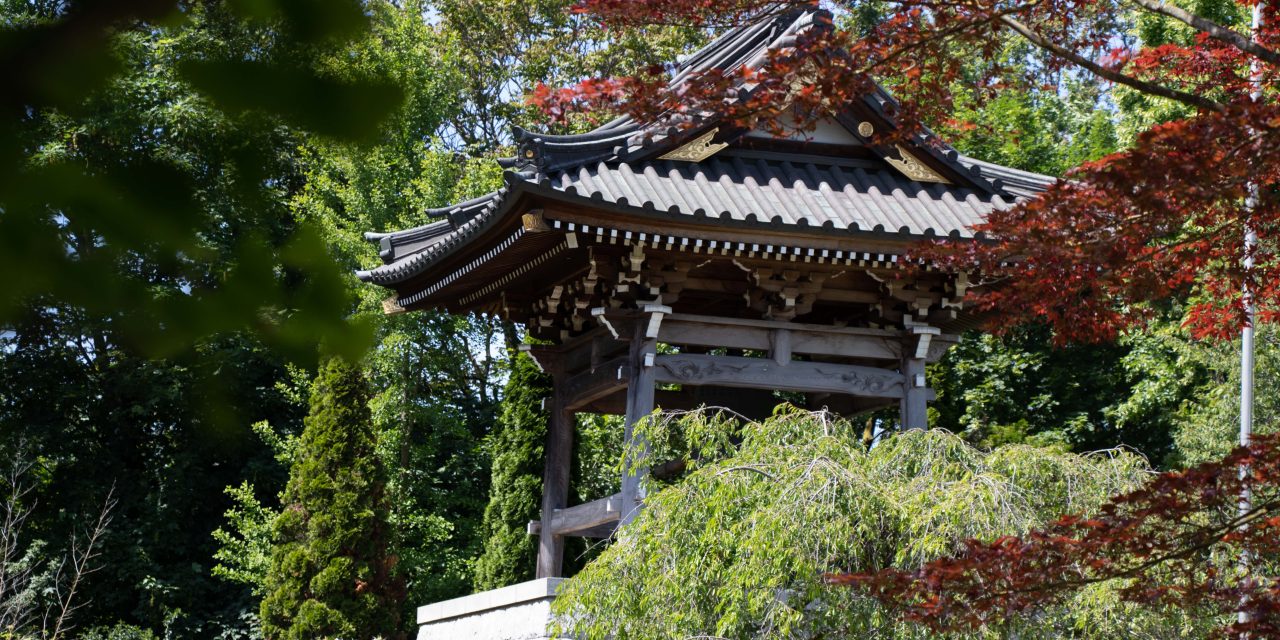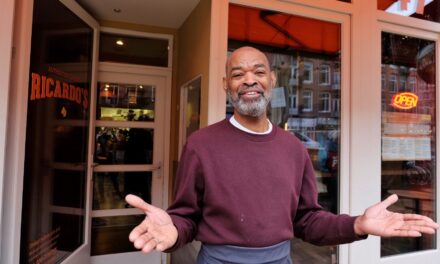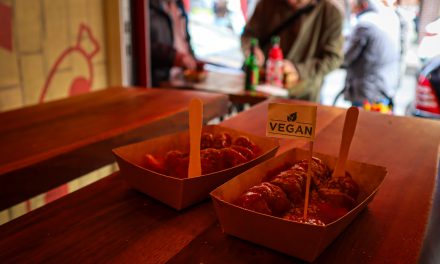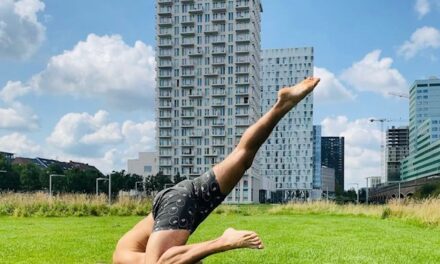Düsseldorf, also known as Tokyo on the Rhine is known for having one of the largest Japanese communities in Europe. This cultural melting pot has led to a vibrant exchange of ideas, art, and traditions, shaping the artistic landscape of the city. The cross-cultural exchange between Japan and Germany has had a profound influence on the city’s artistic expression. Through institutions such as the EKŌ-Haus of Japanese Culture and The Based on Art gallery, the city has become a hub for artistic exploration and intercultural dialogue.
A Post-War Connection
The presence of Japanese citizens in Düsseldorf can be traced back to the post-World War II era when Germany had to rebuild its economy. Düsseldorf’s strategic location and growing business opportunities attracted Japanese companies and entrepreneurs, prompting a gradual increase in the number of Japanese residents. Now at 7,000 people, the Japanese community in Düsseldorf accounts for one quarter of all Japanese citizens in Germany. Düsseldorf is home to the Japanese Consulate-General, a Japanese Chamber of Commerce and Industry, a Japanese school and kindergartens, and the Japanese Club which has around 4,000 members. Japanese people are part of life in Düsseldorf, enriching the city in every aspect.
As they settled in the city, the Japanese community brought along their unique cultural heritage and artistic traditions, shaping the local art scene in profound ways. It has also sparked a vibrant cultural exchange between Japanese and German artists. This interaction gave birth to a diverse range of artistic collaborations, exhibitions, and performances that showcased the merging of Eastern and Western artistic sensibilities.
Andrea Germer, professor at the Heinrich-Heine University for modern Japanese studies combines research and teaching in cultural and historical studies to understand Japan’s cultural, societal, and socio-economic development as well as its role in Asia and the world. She emphasizes that cross-cultural exchange is not a one-way process, but rather a dynamic interplay of ideas, values, and artistic expressions. “Japanese cultural elements have undoubtedly influenced local art and lifestyle choices, while German culture has also left its mark on the Japanese community in Düsseldorf.”
“We should keep our identity within ourselves, but at the same time we should open our minds to other people for the sake of diversity.”
The EKŌ-Haus and its Significance
Located just minutes away from Düsseldorf’s city center, in the suburb of Niederkassel, lies a place where the Far East and its rich culture are brought to life. Despite the distance between Germany and Japan, the EKŌ-Haus of Japanese culture offers an opportunity to experience the essence of Japan right in the heart of Düsseldorf. Hisao Matsumaru is the director of the EKŌ-Haus. “Since its establishment in 1993, this cultural haven has become a beacon for those seeking an immersive encounter with Japanese culture”, says Matsumaru They offer a range of events on various facets of the Japanese culture, such as lectures on traditional Japanese arts, exhibitions featuring Japanese and non-Japanese artists, film programs, tea ceremonies, calligraphy courses and language classes.
When entering the EKŌ-Haus, visitors are immediately captivated by its serene ambiance and the authenticity it displays. The garden is decorated with flowers, plants and carefully arranged stones, creating an atmosphere that sets the stage for a transformative experience. The presence of a Buddhist temple complex, with a bell tower and a traditional wooden house, further enhances the immersive journey into Japanese culture.
EKŌ means ‘benevolent light.’ The benevolent light of the Buddha, as it is called in the Buddhist scriptures, shines without boundary or end, in all directions. According to Matsumaru the open exchange between the cultures and the dialogue between the religions that is to take place in the EKŌ-House, was Yehan Numata’s guiding light for the future. Matsumaru: “I think that when representatives of Buddhism and other religions work together it becomes possible to ask questions and seek their solutions on a world scale.”
Matsumaru says that the place serves as a gateway for cultural exchange, allowing individuals from diverse backgrounds to connect with the essence of Japan. “We should keep our identity within ourselves, but at the same time we should open our minds to other people for the sake of diversity.” His aspirations for the EKŌ-House in terms of enriching and preserving the Japanese heritage in Düsseldorf are getting as many people as possible to come visit and see this magical place for themselves. “That way they get a touch of the Japanese culture and Buddhism”, says Matsumaru.
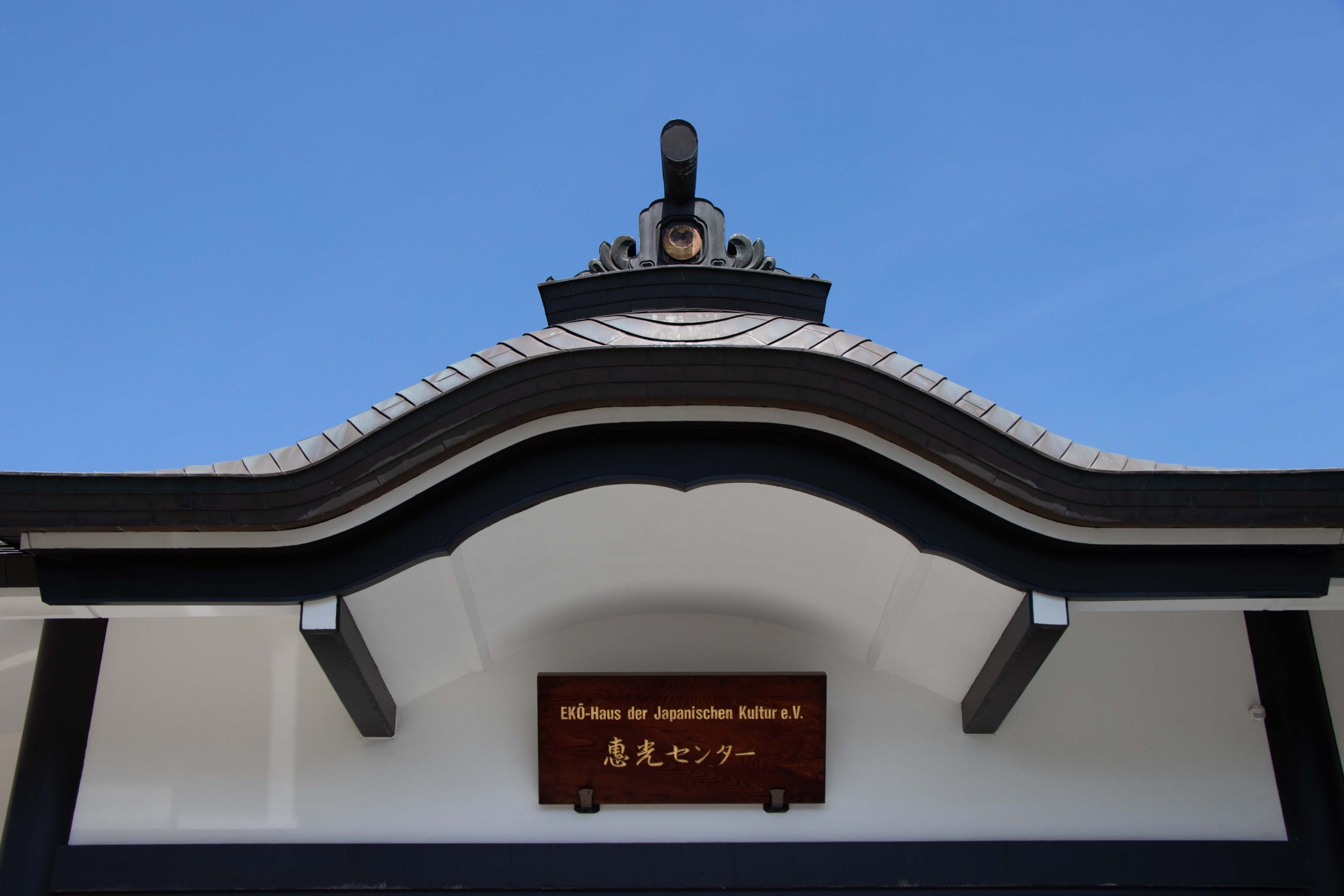
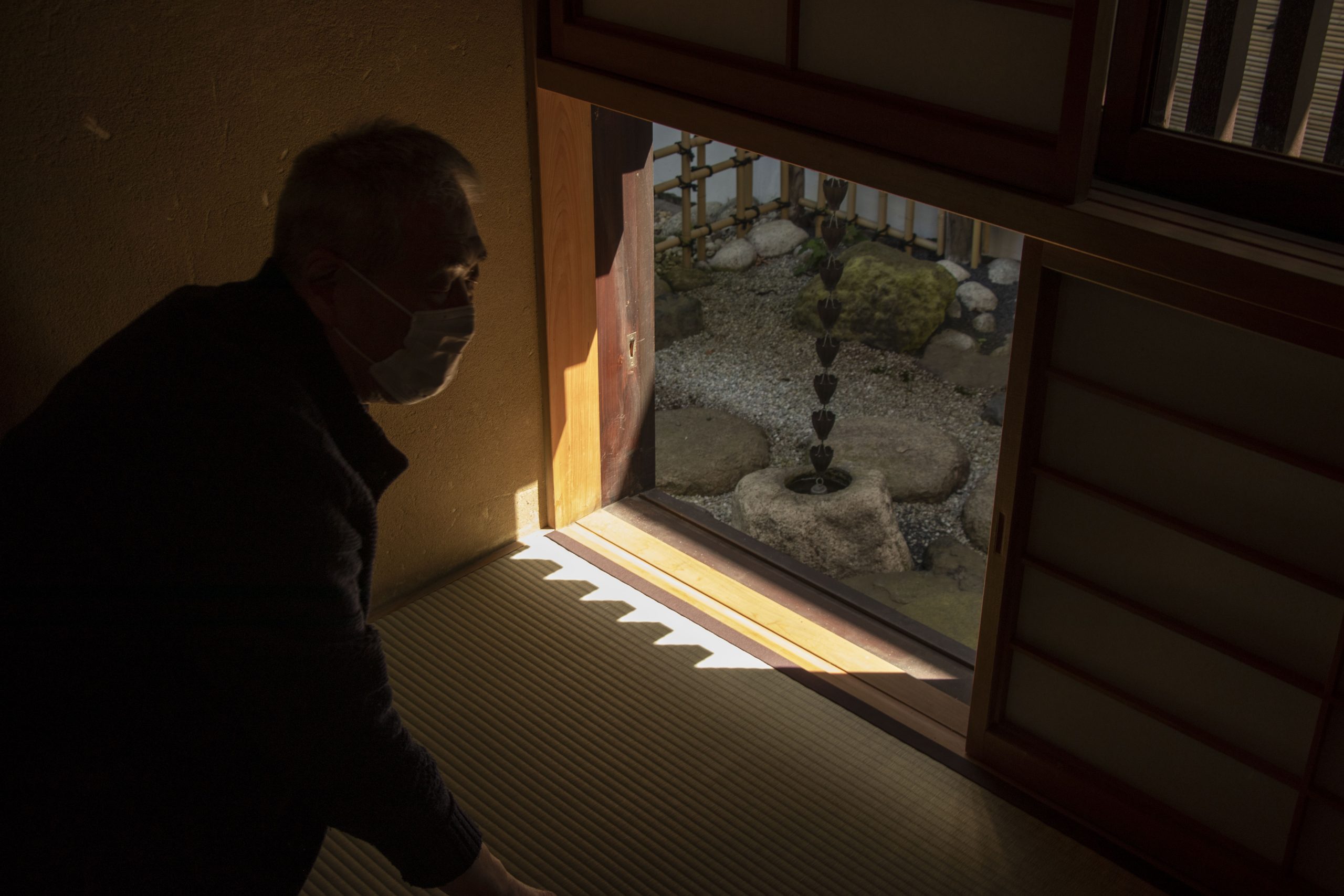
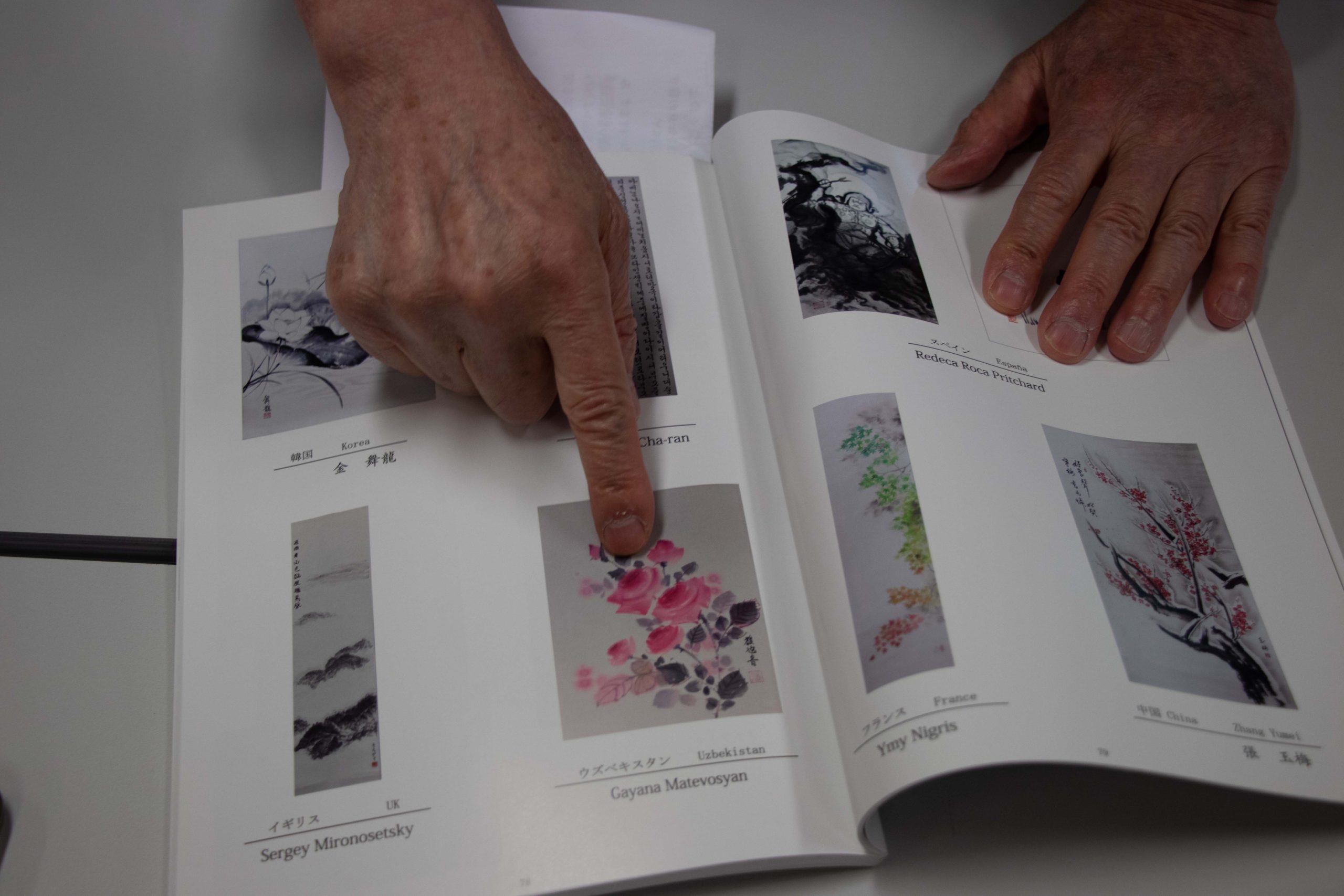
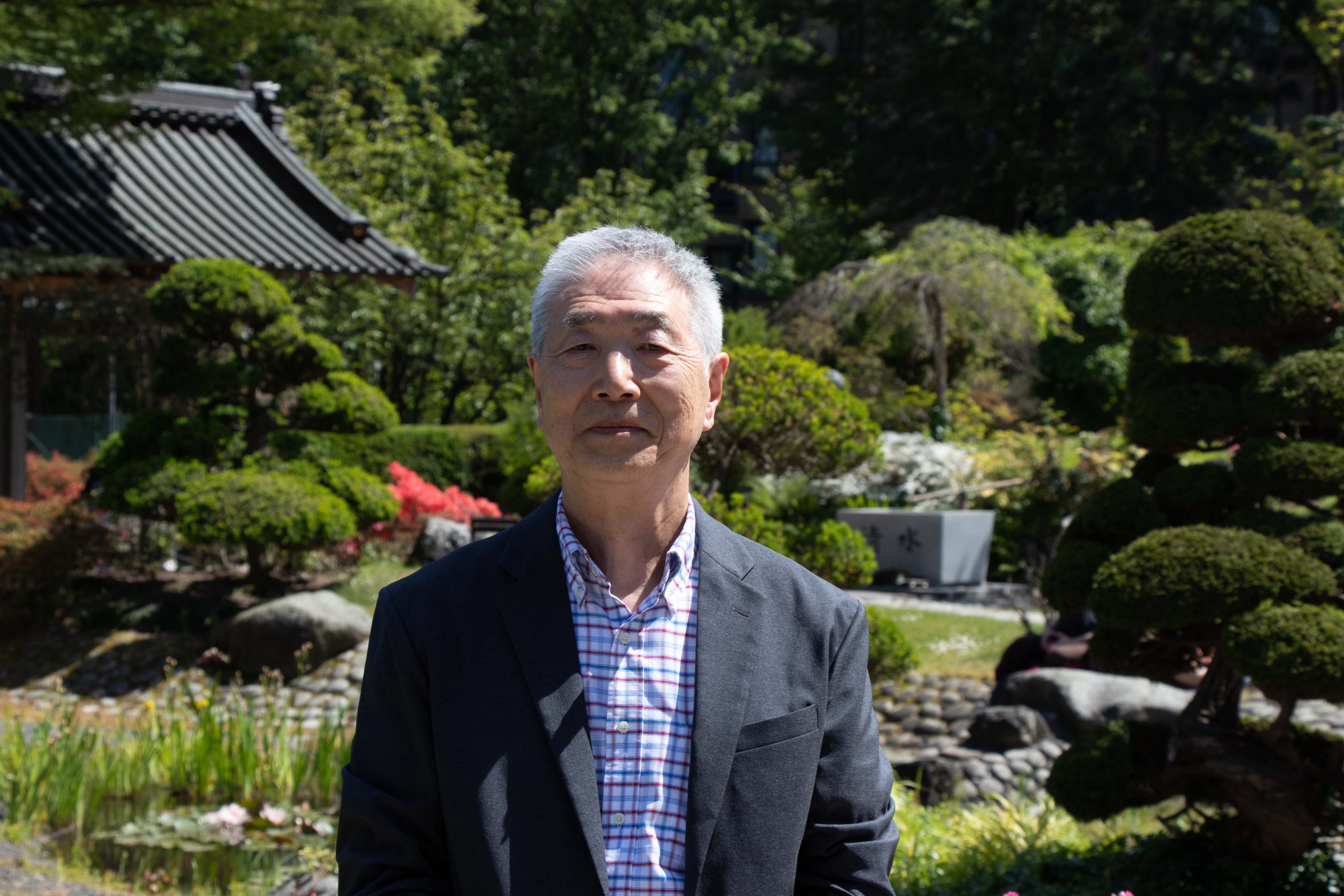
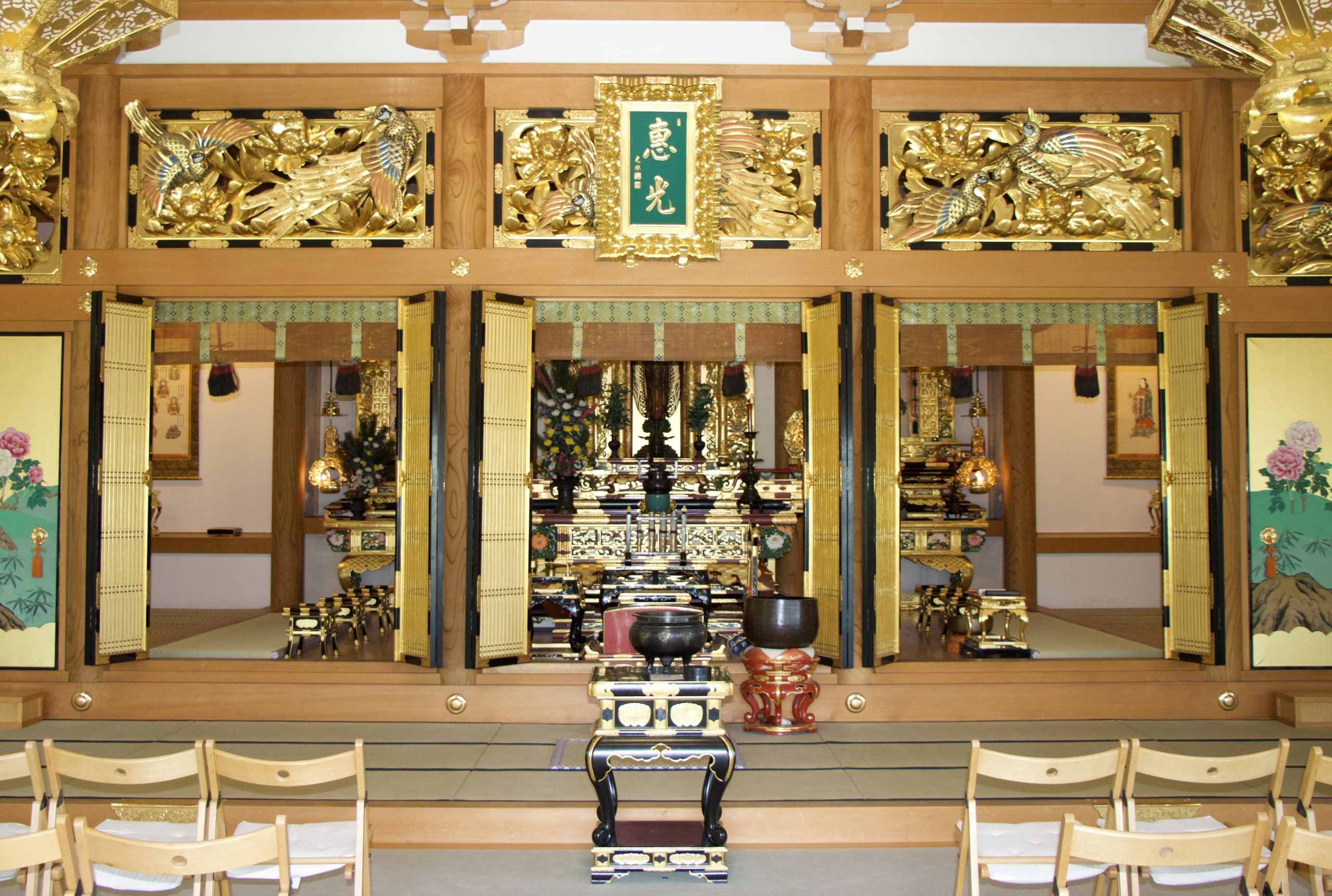
“Preserving the authenticity of Japanese culture and art while adapting to the local context can be a delicate balancing act.”
The impact on the local art scene
The influence of the Japanese community on Düsseldorf’s art scene extends beyond the confines of the EKŌ-House. Japanese artists residing in the city have contributed significantly to the local art community, injecting new perspectives, techniques, and themes into their work. This artistic exchange has enriched the creative landscape of Düsseldorf and has helped artists with diverse backgrounds to share their ideas and work together in creative and innovative ways.
Furthermore, the presence of Japanese galleries, art studios, and exhibitions in Düsseldorf has provided a platform for both Japanese and German artists to showcase their work. A place that does exactly this is the Based on Art gallery. Artists-gallerists Dunja Evers and Thomas Mass curate exhibitions that expand their own creative practices while contributing to a larger transcultural narrative. Evers: “We are both artists. I’m working with photography and film and and my Thomas is a painter and a collector of ancient Asian vases. For a long time, we were this crossover of cultures, time and arts and crafts.” The idea to create a space to exhibit a mix of western and Asian art was born. Its the only gallery one of its kind in Düsseldorf, specializes in exhibiting international contemporary and pre-modern Asian art, including antique ceramics . The gallery’s goal is to illustrate artistic connections across time and culture, initiating a cross-cultural dialogue that strengthens individual artistic identities.
The exhibition on element number 79, also known as gold is an example on how both Japanese artists and German artists work together. With elements for Japan as well as the ideas of local artists the gallery was able to create an interesting mix of the pliable material gold, which has always been imbued with a multi-layered cultural context. According to Evers Based on Art provides a platform for Japanese artists to exhibit their works in Düsseldorf. “By showcasing a variety of art forms such as painting, sculpture, photography, and traditional crafts, we offer a direct experience of Japanese artistic expressions.”
This exposure helps residents and visitors gain a deeper understanding and appreciation of Japanese art. The gallery attracts a diverse audience, including art enthusiasts, students, scholars, and individuals with an interest in Japanese culture. The space where the art is presented also serves as meeting points where people from different backgrounds can come together to appreciate and discuss art. Evers: “Preserving the authenticity of Japanese culture and art while adapting to the local context can be a delicate balancing act. It is essential to respect and uphold traditional Japanese artistic practices while allowing space for innovative interpretations and contemporary expressions. Encouraging artists to navigate this balance can lead to the creation of unique and culturally rich artistic works that resonate with both the Japanese community and the local audience.”
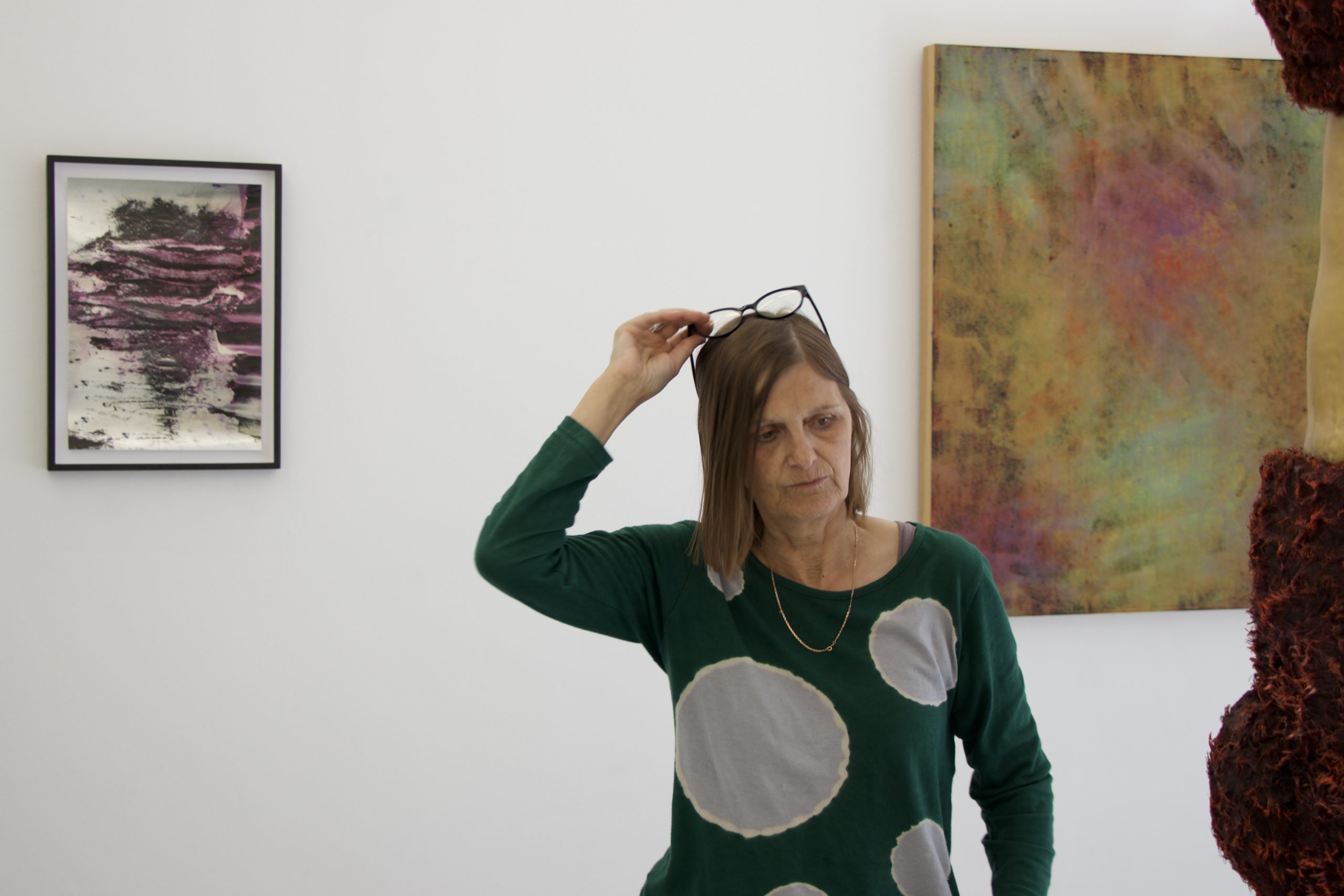
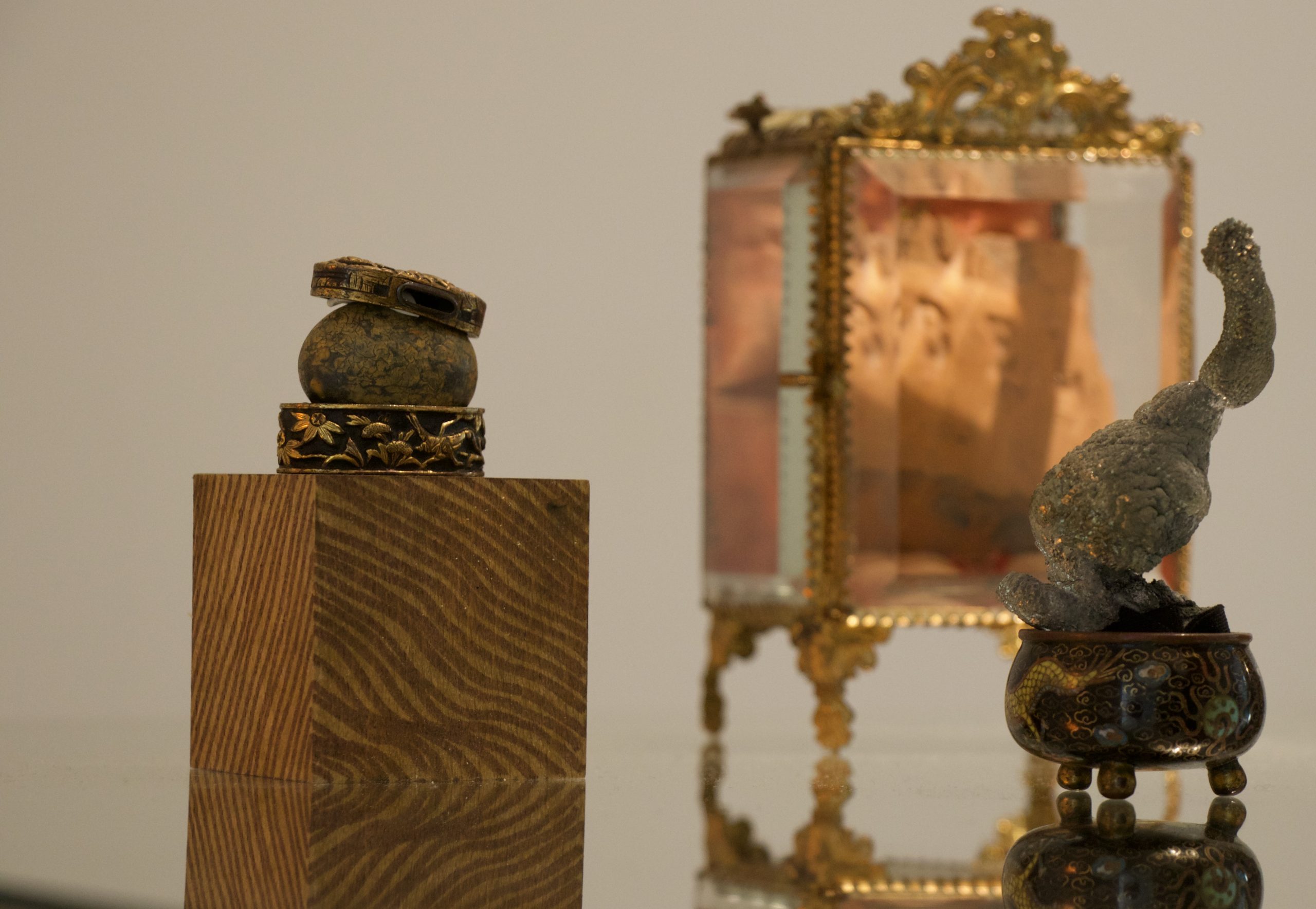
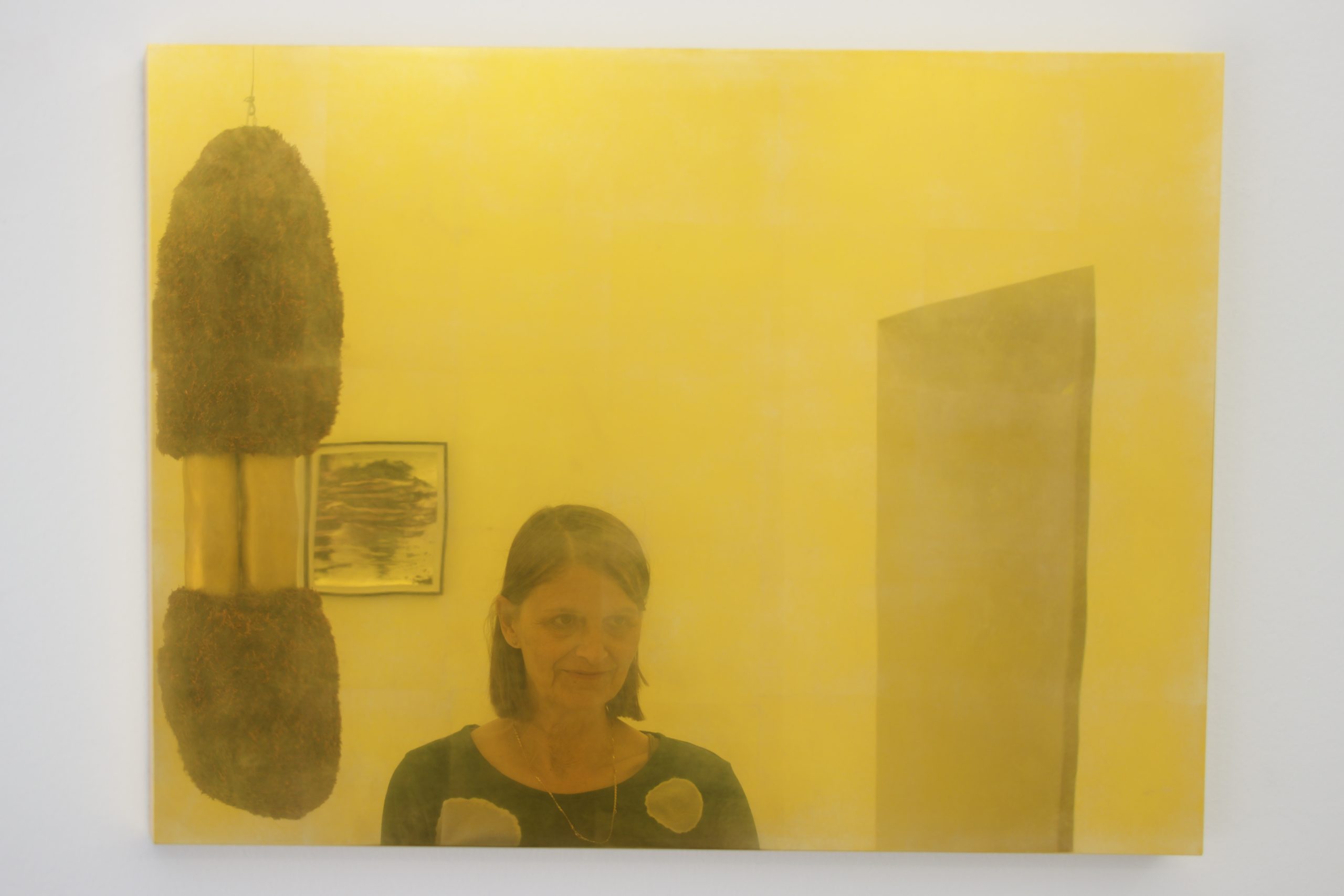
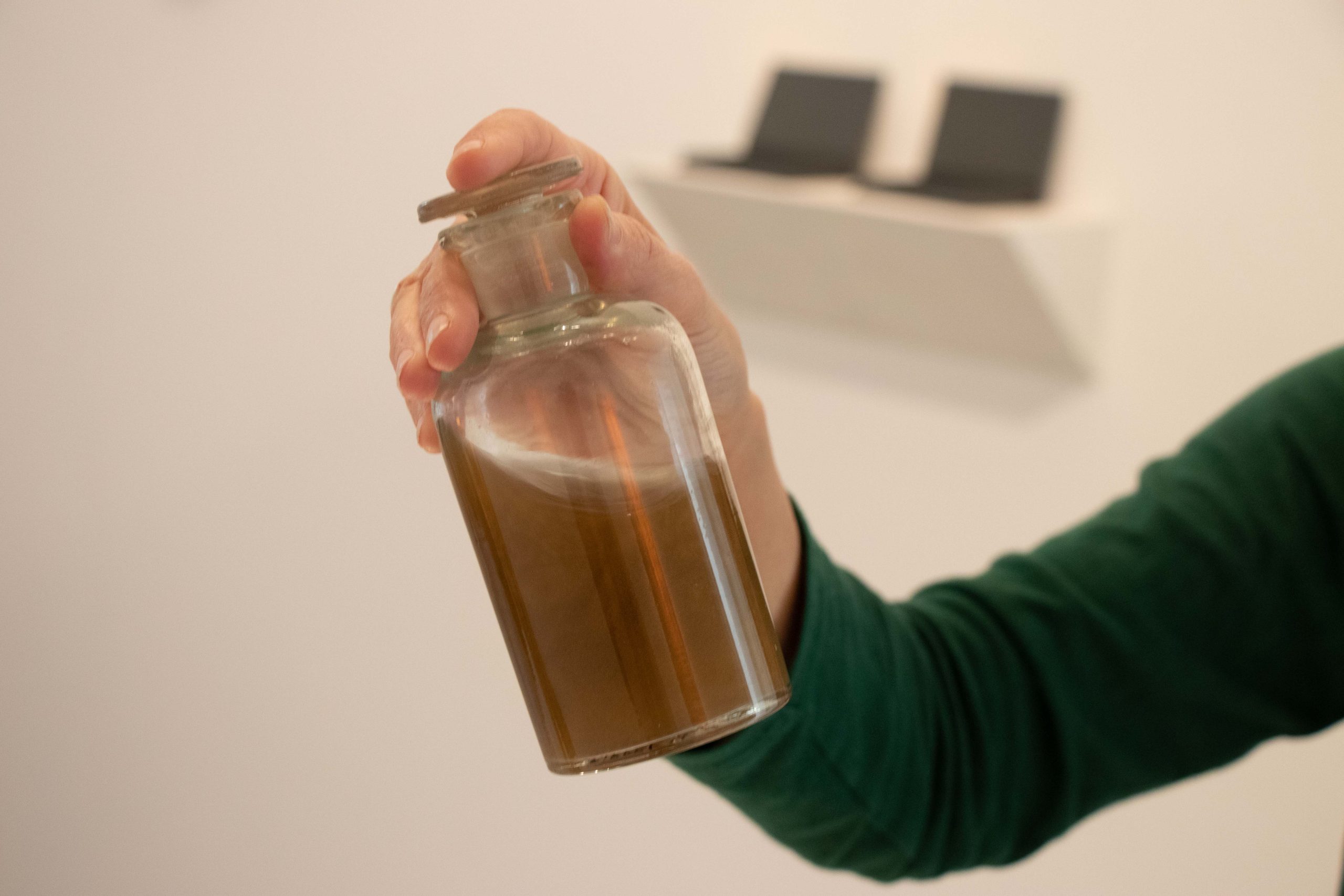
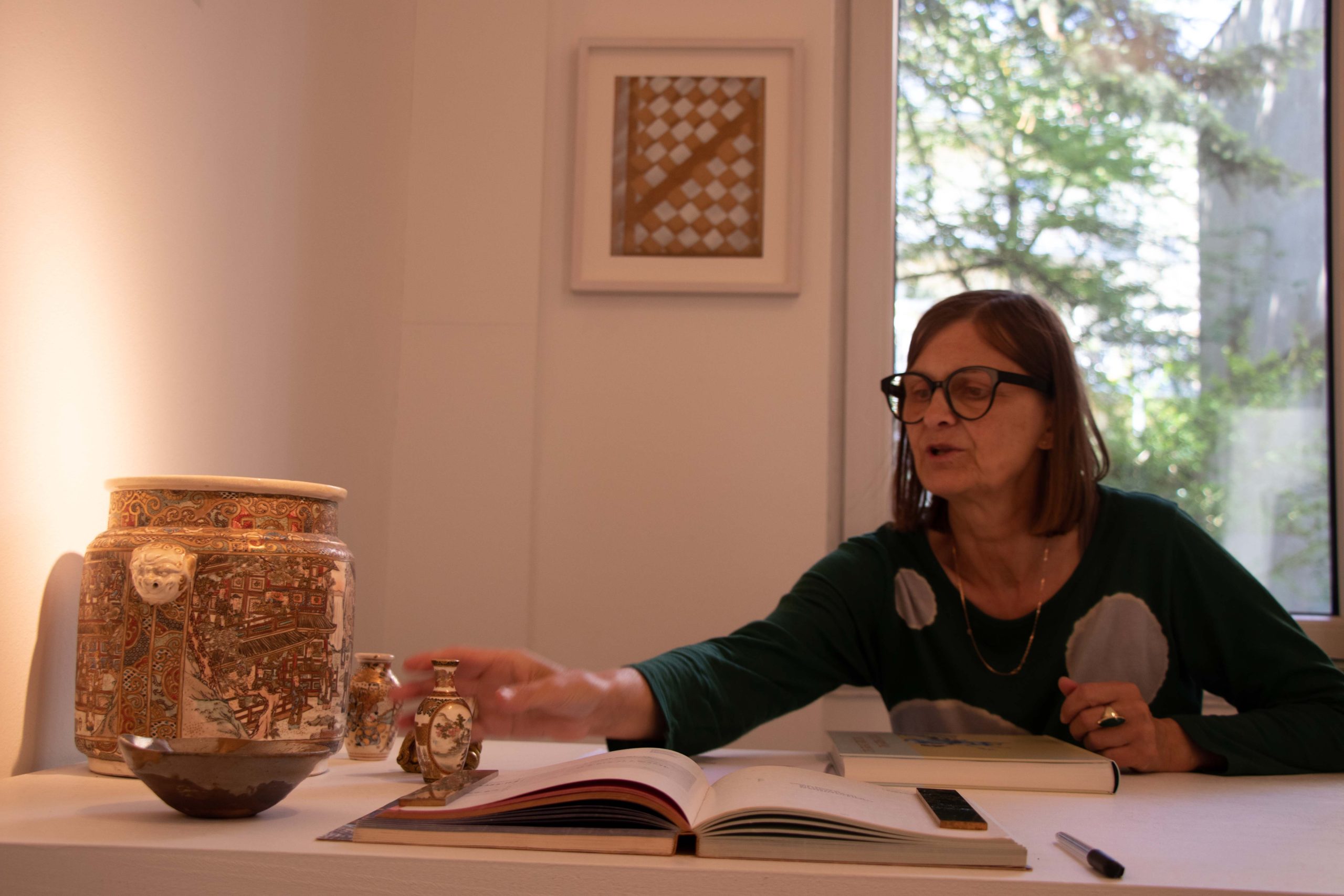
“It is essential to approach cross-cultural exchange with a deep understanding of different cultures, inclusivity, and a willingness to learn and adapt.”
Challenges in Cross-Cultural Art Appreciation
Professor Germer says that this interaction helps bridge cultural gaps, encourages dialogue, and fosters a sense of community among those interested in Japanese art and culture. While cross-cultural exchange is a good thing it also comes with challenges. According to Germer it may give rise to issues of cultural appropriation, where elements from one culture are adopted or exploited by another without proper understanding or respect. This can lead to the commodification of cultural symbols or practices, potentially diminishing their cultural significance and integrity. There is also a risk of perpetuating stereotypes or reducing diverse cultures to simplistic representations. This can hinder genuine exploration and appreciation of the depth and complexity of different artistic traditions and identities.
To tackle these possible challenges, it is crucial to approach them with care and understanding. Artists, institutions, and audiences should prioritize sensitivity, engage in open conversations, and demonstrate a shared commitment to mutual respect and comprehension. Germer: “It is essential to approach cross-cultural exchange with a deep understanding of different cultures, inclusivity, and a willingness to learn and adapt. By fostering authentic collaboration and genuine appreciation, we can navigate these complexities and create a space where diverse artistic expressions thrive.”
Genuine collaboration
Next to its role as a local cultural institution, the EKŌ-Haus of Japanese culture extends its reach beyond the borders of Düsseldorf and Germany. Through a vast network of collaboration, the EKŌ-Haus actively engages with other organizations dedicated to the promotion and preservation of Japanese arts and culture, making it more influential and important on a global level. “The EKŌ-Haus is a demonstration on how important the cultural exchange between east and west is for the future, as well as the necessity for the common problems of humanity to be addressed together, United.” Matsumaru says.
Through institutions like the EKŌ-Haus of Japanese Culture and The Based on Art gallery, individuals from diverse backgrounds can connect with the essence of Japan. Although there are challenges understanding, respect and genuine collaboration can help overcome these complexities and create an environment where diverse artistic expressions can thrive. Both the EKŌ-Haus and the Based on Art gallery, with its collaborations on a global scale, acts as a beacon for the promotion and preservation of Japanese arts and culture. They also stand as a testament to the power of cross-cultural dialogue and the profound impact it can have on shaping artistic landscapes and creating a more inclusive and interconnected world. Evers: “As Düsseldorf continues to embrace its status as Little Tokyo on the Rhine, it reinforces the importance of art as a universal language and a bridge between cultures.”
